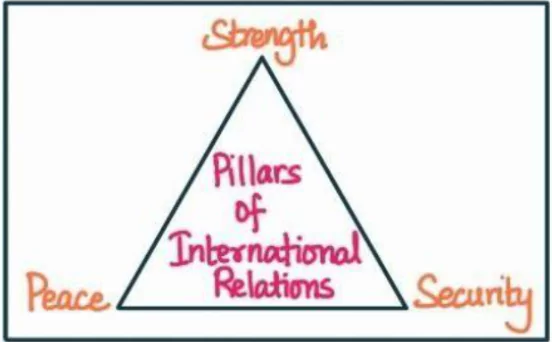Answer:
|
How to approach the question
- Introduction
- Write about international ethics briefly.
- Body
- Write the various sources of international ethics.
- Write how adherence to international ethics can contribute to the realization of the SDGs by 2030.
- Conclusion
- Give appropriate conclusion in this regard.
|
Introduction
International ethics encompasses the moral principles and norms governing the conduct of nations and their interactions. It emphasizes fairness, justice, respect for human rights, and the pursuit of global well-being fostering a harmonious coexistence on a global scale.
Body
Various sources of international ethics

- International Law: Treaties, conventions, and agreements establish legal frameworks that shape ethical standards. For instance, the Universal Declaration of Human Rights sets out fundamental rights and freedoms for all individuals.
- Universal Moral Principles: Certain ethical principles are considered universally applicable, such as respect for human dignity and the principle of non-discrimination. These principles transcend cultural and national boundaries.
- Religious and Philosophical Traditions: For example, the concept of “just war” in Christian ethics and the principle of “ahimsa” (non-violence) in Hinduism and Jainism influence international ethical discussions on armed conflicts.
- International Institutions: Organizations such as the United Nations (UN) and its specialized agencies play a significant role in promoting ethical behavior among nations. The UN’s Sustainable Development Goals exemplify this.
- Ethical Foreign Policy: For instance, India’s Vaccine Maitri initiative aims to provide COVID- 19 vaccines to countries in need, especially developing nations, embodies the principles of benevolence and compassion.
- Global Public Opinion: Public opinion and civil society movements exert pressure on governments and international actors to act ethically. Examples include global campaigns for climate action or fair trade practices.
- Academic Discourse: Ethical debates among scholars, philosophers, and researchers contribute to shaping international ethics. Academic institutions and think tanks provide platforms for discussing and refining ethical frameworks.
Adherence to international ethics can contribute to the realization of the SDGs by 2030 by
- Upholding human rights: These principles, such as non-discrimination and equality, can ensure inclusive and sustainable development. For instance, providing access to quality education for all without discrimination fosters SDG 4 (Quality Education).
- Environmental stewardship: Following ethical principles of environmental sustainability, like reducing carbon emissions and preserving biodiversity, helps achieve SDG 13 (Climate Action) and SDG 14 (Life Below Water).
- Ethical governance: Promoting transparency, accountability, and integrity in public and private institutions fosters SDG 16 (Peace, Justice, and Strong Institutions) thereby combating corruption and ensuring fair governance.
- Fair trade practices: Adhering to ethical trade practices, including fair wages and safe working conditions, advances SDG 8 (Decent Work and Economic Growth). Like the fair trade certifications guarantee a living wage for farmers and artisans.
- Gender equality: Embracing principles of gender equality empowers women and girls, directly contributing to SDG 5 (Gender Equality). Ensuring equal opportunities and eliminating gender- based discrimination leads to inclusive growth.
- Ethical investment: Responsible investment practices can channel funds into sustainable projects. Like, investing in renewable energy infrastructure supports SDG 7 (Affordable and Clean Energy) and SDG 9 (Industry, Innovation, and Infrastructure).
- Ethical consumption: Promoting responsible consumption patterns among individuals and communities supports SDG 12 (Responsible Consumption and Production). Choosing sustainable and ethically produced goods reduces environmental impact.
Conclusion
Overall, international ethics draw from a wide range of sources, reflecting the complex interplay of legal, moral, cultural, and institutional factors in guiding ethical behaviour among nations. And, create a framework for inclusive and sustainable growth, ensuring a better future for all.
To get PDF version, Please click on "Print PDF" button.


Latest Comments